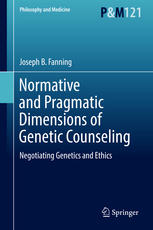

Most ebook files are in PDF format, so you can easily read them using various software such as Foxit Reader or directly on the Google Chrome browser.
Some ebook files are released by publishers in other formats such as .awz, .mobi, .epub, .fb2, etc. You may need to install specific software to read these formats on mobile/PC, such as Calibre.
Please read the tutorial at this link: https://ebookbell.com/faq
We offer FREE conversion to the popular formats you request; however, this may take some time. Therefore, right after payment, please email us, and we will try to provide the service as quickly as possible.
For some exceptional file formats or broken links (if any), please refrain from opening any disputes. Instead, email us first, and we will try to assist within a maximum of 6 hours.
EbookBell Team

5.0
38 reviewsThis book provides an elaboration and evaluation of the dominant conceptions of genetic counseling as they are accounted for in three different models: the teaching model; the psychotherapeutic model; and the responsibility model. The elaboration of these models involves an identification of the larger traditions, visions and theories of communication that underwrite them; the evaluation entails an assessment of each model’s theses and ultimately a comparison of their adequacy in response to two important concerns in genetic counseling: the contested values of non-directiveness and the recognition of differences across perspectives, with special focus on how religious and spiritual beliefs of patients are coordinated with the networks of meaning in genetics. Several insights are made explicit in this project through the work of Robert Brandom. Brandom’s deontic scorekeeping model demonstrates how dialogue is at the root of grasping a conceptual content. Against this backdrop, professional communications such as genetic counseling can be seen as late developments in linguistic practices that have structural challenges. Brandom’s model reminds us that the professional needs the client’s understanding to grasp conceptual content in a particular context.